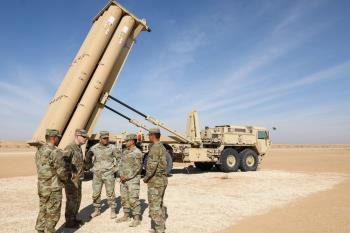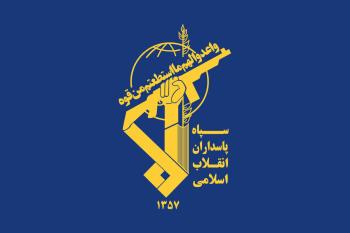Alwaght- As the official term of office is over for President Massoud Barzani in the Kurdistan region of Iraq, the debate over the political system of the Kurdistan region has turned into a challenging issue. Massoud Barzani has been in office for ten years as the president of the Kurdistan region, and when his official term of office was over in June 2013, the Kurdistan Democratic Party led by Barzani and Patriotic Union party of Kurdistan led by Jalal Talabani agreed to extend his term for two years through the parliamentary process. According to the provisions of the bill approved by the Parliament in June 2013, Barzani's Presidential term was extended and this period cannot exceed two years, and it will end on 19August 2015.
In this situation, the Kurdistan Democratic Party claims that at current local and regional chaotic situation, it is better that Barzani remains in office, because the current sensitive situation prevailing in Iraq requires an astute politician like Massoud Barzani. They say that after 2 years, they will accept the parliamentary system as the political system of the Kurdistan region. The reason they give for this claim, is the Article 4 of the Presidential Law of the Kurdistan region, based on which the Presidential and Parliamentary elections should be held in the same day. As two years remains from the Parliament's term, they claim that to hold both elections at the same time, they have to extend the presidential terms for another two years. The opposition parties seek to change the political system into a parliamentary one. In these circumstances, a commission including 21 representatives of the parties were supposed to discuss the issue in the remaining time and settle it through compromise. The commission members have yet failed to reach a unanimous consensus. In these conditions, Barham Salih, Deputy Secretary General of Patriotic Union of Kurdistan and a former Prime Minister of the Kurdistan regional government has proposed a comprehensive plan to resolve the basic problems of the Kurdistan region, which will be discussed in the following lines.
Barham Salih Project
Barham Salih as one of the well-known political figures of the Kurdistan region is highly venerated among those who advocate or oppose to his party. Taking advantage of this feature, and being aware that members of the parties have failed to achieve a consensus, he has proposed a comprehensive plan to solve the current issues of the Kurdistan region.
He said that the political issues of the Kurdistan region are not easy to solve, and we should note that there is a high risk of civil war and division if you are aware of the periods during which the Kurdistan region was governed by two systems, and there were conflicts between the Democratic Party and the Patriotic Union party of the Kurdistan region. As he believes the current problems are the unsettled conflicts of 24 years which have been piled up and this is not anything new, so there is an urgent need for fundamental reform and finding a comprehensive solution to this problem.
Two-year Transition process
Salih has called the period leading up to parliamentary elections as transition process. This two-year process will begin from the day current presidential term is over and will continue up to 2017 parliamentary election. His project centers on these two years, and if it is accepted by different currents and the Parliament, he believes, it will turn to a period for political organization of the Iraqi Kurdistan region and can make way for addressing the problems that have remained unsolved for several years. Although the project does not directly address the extension of the presidential term of Massoud Barzani, it has implicitly supported the governance of the Kurdistan region by continuation of presidential years for another two years. It is said that compromise on Barzani's remaining in office up to 2017 would be possible if the Project is approved.
Transition committee
To set up a transition committee composed of the President and the Prime Minister of the Kurdistan regional government, their deputies and representatives of political parties, is one of the most important points proposed in Barham Salih's Project. This committee has a duty to deal with the fundamental issues that raise during the two-year transitional period. These issues include:
1. National Security
Issues related to national security are among the major problems in any country. The military and police forces are also the means of security institutions. In the Kurdistan region of Iraqi, the military forces which are in charge of protecting the security are known as 'Peshmerga' and police forces are known as 'Asayish'. One of the crises facing the above mentioned forces that has persisted from the two governing system period, is the lack of national cohesion among these forces, and also their dependence on political parties. This was quite evident while addressing the threat of the ISIS, as the existence of multiple commands and following the instructions of the parties created a lot of problems. However, the Project seeks to organize these forces through granting all the relevant powers to the Minister of Peshmerga Affairs and the Interior Minister to nationalize them.
2. The future of the relations between Baghdad and the Kurdistan region
In recent years, the multidimensional Kurdistan region-Baghdad conflict has changed to one of the main crises in the relationship between the federal government and the Kurdistan region. The conflict includes a series of political, economic and legal issues. In this regard, over the next two years, the transition committee will be required to examine the possible scenarios in terms of the optimal model for developing ties with Baghdad and provide the Parliament with the most efficient scenario for such a relationship.
3. To develop relations with Iran and Turkey
With a look at the West Asia countries and neighbors of the Kurdistan region, one can easily recognize that Iran and Turkey are among the most important countries of the region. To develop strong relationship with one or both of these two countries, is one of the most important political considerations in the Kurdistan region. The cultural commonalities with Iran on the one hand, and the economic importance of the oil pipeline to Turkey on the other hand show the importance of relations with these two countries. Over the next two years, the committee should travel to countries in the region to discuss current and future trends and attract their support.
4. Reforming judicial system and its independence
The judicial system is of particular importance among the three main Powers and requires autonomy to appropriately fulfil its duties and functions. In financial corruption cases in a housing project in Erbil, the project contractor had fled to Sulaimaniyah, and Erbil courts were incapable of exercising power and prosecuting that person. In recent months, there were public protests about the dependence of the courts, which raised the criticism of the media and public opinion. Accordingly, in order to have an independent judicial system and not to get affected by other factions, the Barham Salih's Project calls for major reforms in the Judiciary Power, and eliminating the interventionist role of the parties and authorities in the Judiciary so that it can rightly investigate the legal cases.
5. Reform in the posts of Chief of Staff of the KRG Presidency and the Committee of Ministers
Two important and somewhat new advisory posts in the Kurdistan region were the 'Chief of Staff to the Presidency of the Kurdistan Regional Government' and the 'Committee of
Ministers'. These two posts have also become one of the major issues in the Kurdistan region and need to be reformed in order to determine their main functions. Therefore, in the Barham Salih's Project, the transition committee is requested to specify the duties and powers of these two posts.
6. Increased administrative power of the provinces and attempts to decentralize the administrative system
After 2003 and the decentralization of power in the new Iraqi political system, the principle of decentralization caught the attention of the provinces, and the provincial committees and entities demanded more administrative powers for making decisions and more accurate and efficient handling of their own affairs. Decentralization of power is one of the favorable features of committees and brings about greater participation. It also reduces the burden of the costs imposed on their headquarters. Accordingly, over the next two years, the transition committee will investigate the status of administrative institutions of the provinces in the Kurdistan region, and it will make attempts to provide the Parliament with agenda and proposals in order to explore and grant the committees of the provinces more powers and independence.
7. To establish an oil revenue fund
The sale of oil is the main source of income for the Kurdistan region of Iraq. However, in recent years, the corruption affiliated to oil revenues has become one of the most important issues and has raised criticism against the Ministry of Natural Resources. In this regard, Barham Salih, in his Project has proposed building an oil revenue fund for better management of income derived from the sale of oil.
Conclusion
In general we may come to this conclusion that, although this Project is provided by Barham Salih, the Kurdish Democratic Party also seems to partially agree with the Project. As the Project was introduced, the Kurdistan Patriotic Union party reviewed the Project at a meeting, and it appears to have been accepted and it will be formally presented to the Parliament for further investigation. Despite limited time for making decisions, it is likely to be approved. The comprehensive Project proposed by Barham Salih should be regarded as the most important plan that its outlined goals will help to develop political organization, greater stability and cohesion in the Kurdistan region of Iraq, and it is hoped to provide a way out of the current situation and make compromise between different factions.


























